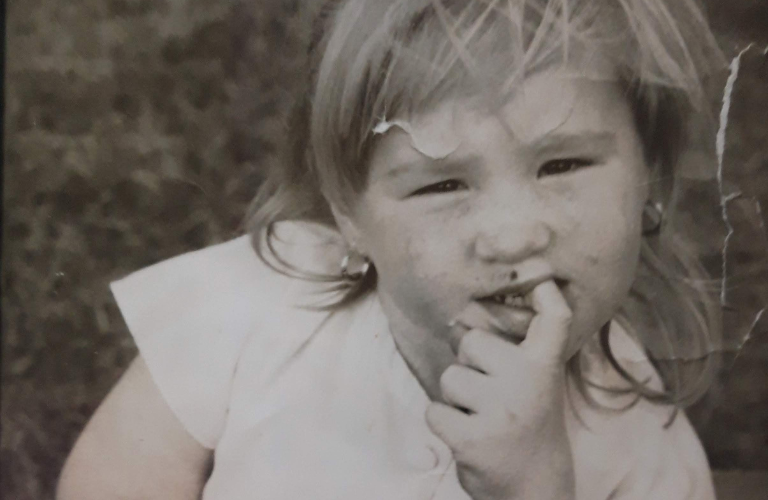Dementia care in Gypsy, Roma and travelling communities
Admiral Nurse Cheryl Scarrott discusses the health experiences of families living with dementia in Gypsy, Roma and Travelling communities.
I am a dementia specialist Admiral Nurse and part of the Romany Traveller community – a group of people who don’t seek permanent settlement.
When I began my career in Nursing, I chose not to share my Traveller identity due to fear of judgment and prejudice. Sadly, this is the reality of navigating working life for many people in my community. But as I realised how sharing my personal experience could help bridge the gap in care, I became more open.
For a number of different ethnic groups and people belonging to the Gypsy, Roma and Travelling communities – periodically moving from place to place in search of a new home is a way of life. My family are Romany Travellers – our ancestors have been in Britain since around 1515, following migration from Northwest India.
Since 2019, I’ve been working as an Admiral Nurse at Shropshire Community Health NHS Trust. I provide practical and emotional support to local families affected by dementia to help them live positively beyond diagnosis.
It is estimated that there are 25,000 people currently living with dementia from Black, Asian and minority ethnic groups, which includes the Travelling community in England and Wales. This is expected to exceed 172,000 people by 2051 – a seven-fold increase in comparison to a two-fold increase among the wider population.
People in Gypsy, Roma and Travelling communities have poorer health outcomes than any other minority; this is reflected in the experiences of families living with dementia.
Becoming an Admiral Nurse
My beloved Granny was diagnosed with Alzheimer’s disease over a decade ago and I watched my Grandad struggle with her care as there was no specialist dementia support available for families. My Granny’s passing was the turning point for me; I wanted to advocate for all families with dementia to improve access to care.
At the age of 18, I left school to pursue a Law degree but quickly realised this wasn’t the career path for me. Following my Granny’s diagnosis, I applied to study mental health nursing so I could become a specialist dementia nurse to honour her memory. When I qualified as a nurse, I worked in several settings including a care home, memory clinic and the local community mental health team. This experience led me to securing the Admiral Nurse position at Shropshire Community Health NHS Trust – a very proud achievement.
Cultural traditions in the community
There is limited awareness of cultural traditions in Gypsy, Roma and Travelling communities among health and social care professionals, particularly the mentality to look out for our own. There is a deep sense of mistrust of those outside of the Travelling community, often a result of discrimination; discussing my background enabled me to build relationships with families through shared identity.
I recently supported a Traveller family whose relative was at a late stage of their dementia diagnosis, receiving end-of-life care. They wanted their relative to be cared for at home by family – in keeping with cultural tradition around death. As their Admiral Nurse, I was able to draw on my experience in the community and advocate for them by working alongside the local hospice to ensure they received the best possible care – including pain management and emotional and practical support for the whole family.
Challenges around access to care
Low literacy levels can also impact the care received. The 2011 Census of England and Wales found that only 40% of Gypsies and Travellers had formal qualifications, with many in the community leaving school at a young age to support family and business. This means families do not receive vital information, including awareness of signs and symptoms and diagnostic and post-diagnostic services.
Moreover, families are constantly on the move in this community so continuity of care and access to primary care can be an additional challenge. Typically, initial contact with Traveller families through our Admiral Nurse service is from social care or hospice referrals, where healthcare professionals recognise a family is in need of specialist dementia support. To ensure care is consistent and meeting the needs of the family, I often arrange a follow-up appointment during the visit as part of the ongoing care plan. With families typically only reaching out at crisis point and contact being limited, we always ensure that we’re giving families the space to come to us when they’re ready.

Cheryl Scarott as a child
Looking to the future to improve health outcomes
For a long time now, people from the Gypsy, Roma and Travelling communities have been under-represented in dementia care services which can cause a reluctance for families to come forward and seek support if culturally specific needs aren’t understood. It is critical that we start bridging this gap by making recruitment accessible to all.
We must also continue to build education and awareness among health and social care professionals, by highlighting the health inequalities facing diverse communities. If we are to meet the individual needs of families with dementia, delivering effective person-centred care is paramount such as providing culturally appropriate dementia resources and ensuring that we are supporting families to stay in the accommodation of their choice as their diagnosis progresses.
As dementia diagnoses continue to rise, we face a steep challenge in tackling the health inequalities that leave families with dementia in underserved communities isolated without the care and support they so urgently need.
